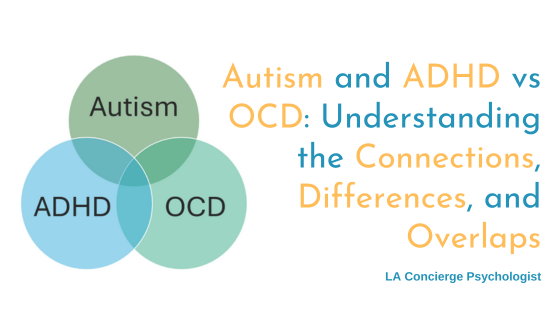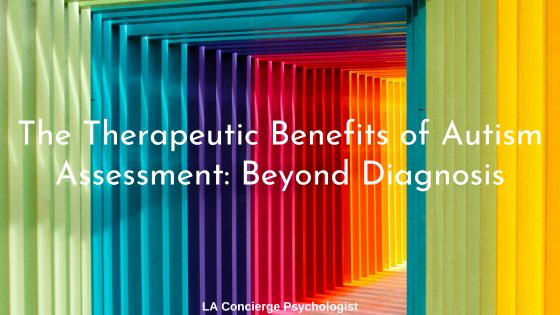Autism And Race: Why Non-Whites Are Often Diagnosed Late
Researchers say there is no biological reason why autism rates should differ by race or ethnicity.[i] Yet, there is a general misconception that autism is a condition only affecting whites. Autism rates are also lower among non-white populations. If autism affects all races and ethnicities equally, why do current autism statistics suggest racial differences?
Misdiagnosis and overlooking autism
The answer to this question is not yet fully understood. Research suggests misdiagnosis plays a role. For example, black people with autism are much more likely to be initially misdiagnosed during childhood than white people.[ii] As a result, they are typically diagnosed much later in life.
Multiple studies have failed to find any difference in autism traits among whites vs. non-whites. The only difference, researchers believe, is in how autism traits are interpreted. For reasons that are not yet entirely clear, characteristics of autism in children are often falsely attributed to attention deficit-hyperactivity disorder (ADHD), adjustment disorder, or conduct disorder.
Physicians’ unfamiliarity with autism
Primary care physicians are tasked with conducting autism screenings during children’s regular checkups. Unfortunately, many pediatricians feel they lack the expertise to identify early autism signs. This is especially true in children whose culture differs from their own.[iii] Some black and Latinx parents seeking autism diagnoses for their children also say they have encountered racial and ethnic bias when seeking autism screenings for their children.
Parental perception of behavior
At the same time, parental misinterpretations of their children’s behaviors may also be unintentionally preventing accurate diagnoses. According to a recent study from Georgia State University, African-American parents expressed a lesser degree of concern about their children’s delayed speech, repetitive behaviors, and other autistic traits. This was despite the relatively high severity of their children’s symptoms.[iv] The study didn’t provide an explanation why. Whether this is due to a lack of awareness of autism in the black community or some other factor is unknown.
Socioeconomic factors
Socioeconomic factors also prevent some autistic non-whites from obtaining a diagnosis. Income disparities between whites and racial minorities have persisted for centuries. And, unfortunately, autistic diagnoses often cost a significant amount of money. People of color may hesitate to seek autism diagnoses for their children, especially after receiving a misdiagnosis or being told to “wait and see” by a pediatrician.
Racial Disparities in Support
All of these factors contribute to delays in diagnosing autistic members of minority groups. This delay is concerning since early diagnoses have consistently been linked with better outcomes for autistic people. Even after receiving a diagonsis, autistic children of color often receive less support.
Language barriers
Language barriers are part of the problem, particularly when it comes to autistic Hispanic people. Mono-lingual Spanish-speaking Hispanic parents can sometimes obtain autism diagnoses for their children with the help of a translator. However, doctors often fail to provide follow-up information in Spanish or refer them to Spanish-speaking autism specialists. Sadly, there’s also a lack of Spanish-speaking treatment providers.
Economic barriers
Economic factors also prevent many parents from getting their children the support they need post-diagnosis. Autism therapy isn’t usually free, placing it beyond the reach of many families who are struggling financially. Long waitlists often plague free or low-cost services. Additionally, some studies suggest that schools and local government programs that provide free or subsidized autism services spend less per child on services for people of color than they do for whites.
Intersection of race and autism
This lack of support is particularly problematic considering the numerous social and societal obstacles faced by black, Latinx, and other autistic people of color. Racism and ableism make life more difficult. While they are undoubtedly challenging to face individually, these racist and ableist attitudes also play off of and magnify each other.
For example, an autistic black person may hesitate to express herself because she struggles to interpret body language due to her autism. She may be doubly hindered by the fear of falling into the racial stereotype of the “angry black woman” if she were to assert herself. Being both black and autistic will make her much likely to express her needs or request accommodations at school or in the workplace.
Latinx men who are autistic find themselves in a similar situation of compound discrimination. Rather than feed into discriminatory views that Latinx abuse social services, they may be less likely to take advantage of public programs offering autism diagnosis or support. These are just a couple of possible examples. You can hear many more examples of compound discrimination by speaking with autistic people of color.
The topic of the unique experiences of autistic minorities brings me to another problem: the general shortage of diversity-friendly autism resources. While the traits of autism do not seem to differ by ethnicity, the experience of autism depends entirely on the cultural context in which it occurs. Very few autism studies have examined the impact of various treatment approaches by ethnicity. This is despite differences in how autism traits are interpreted and viewed in different cultures. In fact, a 2016 review of 408 published autism studies revealed that less than 18% even bothered to report the race, ethnicity, or nationality of study participants.[v]
Access Culturally-Competent Care
As an adult autism specialist who is a person of color, Dr. Lee is mindful of how race and autism influence one another. Dr. Lee truly understands how autism works and how to identify it, even with non-stereotypical presentations.
It’s never too late to obtain an autism diagnosis and get peace of mind. Learn more about Dr. Lee’s adult autism assessment service or autism therapy. You can also send us a message or book a free 20 minute consultation call with Dr. Barajas or Dr. Goldman.



